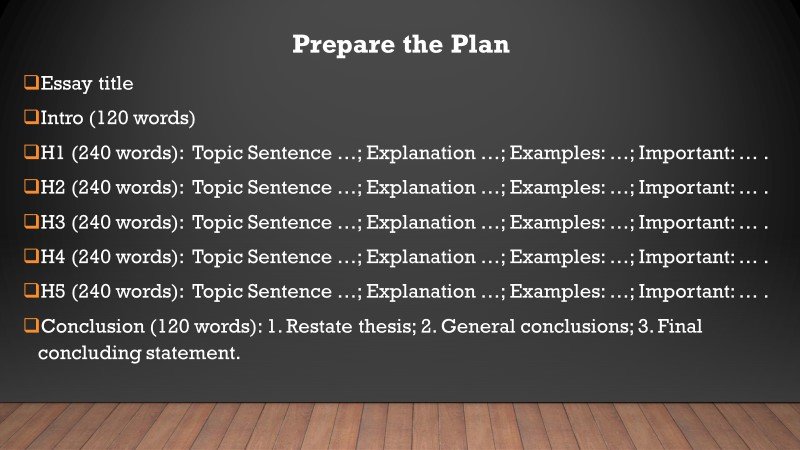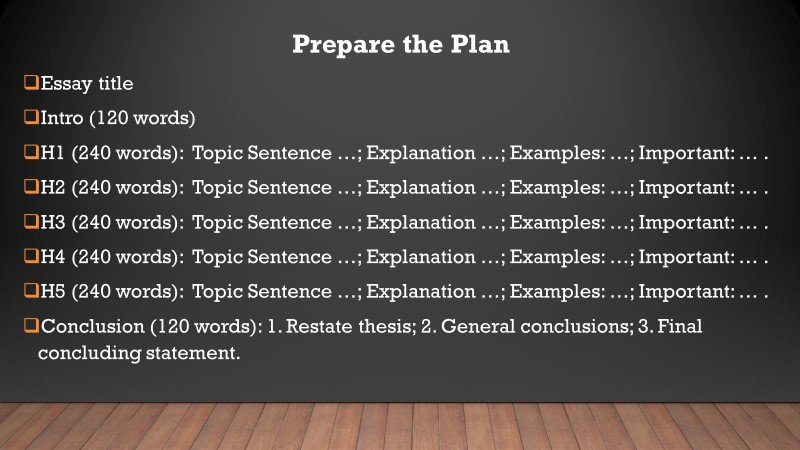Have you ever been assigned an essay with a specific word count to realize you can’t produce enough text to occupy the required space? In college, students face such a situation fairly often, for a variety of reasons:
- you’ve missed a class that covered this issue;
- it is a course you didn’t pay much attention to;
- you’ve simply been given a topic with little to no reliable information on it.
Anyway, you just wonder: “I can’t do that. How can I make my essay longer? Are there any ways to boost my essay length? Who can help me write my essay for me fast?” In this guide, you will find a number of good tips and tricks that will help compose your piece of writing of the needed word count.
How to Make Your Essay Longer: 3 Hacks to Try at a Preparation Phase
Proper planning and preparation are important for all academic tasks, but they become truly crucial if you don’t know how to achieve the required text length. Forget what you have probably heard before – you cannot simply inflate the number of words by adding extra padding after you’ve finished writing (although it helps, to a degree). You have to approach the task strategically – this way, you are far less likely to be read off by your professor.

1. Prepare a Plan
Your essay may end up a page or two shorter than it should be simply because you forgot to mention some points. When you notice that something is amiss, reintroducing this information may require too many changes to be practical. The solution is to make a plan: write what you will mention in the introduction, body paragraphs, and conclusion, which points you will bring up and how you will support them.
2. Prepare a Few Quotations
Quotations are one of the easiest legitimate ways of bloating your word count. However, it is often hard to integrate them into your text without rewriting huge chunks of it. It is better to do some reading beforehand, select a few relevant quotes, and note in your plan where you want to place them. This way, you will be able to lead up to them when it is necessary. However, don’t overdo it – quote others to spice up your own ideas, but make sure that your essay is mostly yours. Check out some of the ways you can quote in your essay:
| How to Introduce a Quote? | Example |
|---|---|
| Use lead-in | “When people think about their vocations, they tend to recall the words of Andre Gide, who says, ‘It is better to be hated for what you are than to be loved for what you are not.’” |
| Use an ellipsis to shorten the quote | “According to Marilyn Monroe, ‘This life is what you make it. No matter what, you’re going to mess up sometimes, it’s a universal truth. But the good part is you … keep trying, hold on, and always, always, always believe in yourself … keep your chin up, and most importantly, keep smiling, because life’s a beautiful thing and there’s so much to smile about.’” |
| Paraphrase fragments | As pointed out in the studies by Chen and Kaplan, parenting practices are associated with child behavior, and child adjusted their behavior in the light of their styles. (2001, p.45). |
3. Find Relevant Examples
Supporting every point, use examples which will not just make your essay longer – it also will show that you’ve done some research and know what you are talking about. If you want to be persuasive, stock up on examples beforehand. Feel free to use texts, graphics, photos, schemes, and many other examples crafted by a qualified instant essay writer to support your arguments and add content to your text.
Words and Phrases: 4 Ways to Make Your Essay Longer in the Process of Writing
Now that you’ve finished the preparatory work, let’s take a look at the words, phrases, and constructions you can use when writing.
1) Introduce Transition Words and Phrases
These are the words and sentences that are used to connect two ideas together, e.g., at the end and the beginning of a paragraph. Besides, they help you whenever you wonder how to make your essay longer. Some examples include:
- Therefore;
- However;
- Thus;
- So;
- Likewise;
- With this in mind;
- In other words;
- In conclusion;
- With regards to this;
- and many others – you get the idea.
Use them when possible, but again, don’t be overenthusiastic – if you begin every sentence with “In other words…,” it makes your essay seem cumbersome. To polish up your prose, feel free to consult a trusted essay writing service anytime. Sooner than you know, your writing skills will get to a brand-new level.
2) Structure Your Paragraphs
Paragraphs in college and school essays are usually built along with one typical structure:
- A topic sentence;
- Main point;
- Supporting evidence;
- Argument (optional);
- Conclusion/transition.
This doesn’t mean that all your paragraphs should necessarily be written this way, thus, you still have to mull over which format suits your paper best.
3) Use More Words than Necessary
After hearing for so long about the advantages of brevity, this tip may look weird. However, if you have nothing substantial to say, you will have to use extra words to make the essay longer. How to make an essay longer? Here are some ways to do it without being too obvious:
- Use “to be” constructions. For example, don’t write “he learns quickly.” Try changing it into “he is a quick learner”;
- Replace verbs with nouns. E.g., “He made a decision that…” instead of “He decided”;
- Add descriptions. E.g., replace “He finally arrived” with “he finally arrived after traveling through the devastated countryside for three days”;
- Replace pronouns. E.g., replace “they” with “he and his subordinates”;
- Add extra adverbs and adjectives. While most good writers argue that adverbs can be removed from any sentence without it losing anything, smoothing out your literary style is currently the least of your concerns. You can bloat most sentences by adding an adverb or two.
- Eliminate Contractions. Make sure to avoid contractions at all costs. They will help you increase the essay word count and make your academic writing piece more formal.
This is another relatively legitimate way to create words out of nothing because you are usually not supposed to use contractions in formal academic writing in the first place. Thus, this is a rare case of getting bonus style points for increasing your word count.
The Effective Ways to Make an Essay Longer: The Final Stage
If you’ve used all the aforementioned strategies on ways to make your essay longer, but your essay still needs a few paragraphs or even pages to meet the required size, the time has come for some creative editing. Here are some ideas to make an essay longer:
Check if There Is Anything to Elaborate on Further
Reread your essay and see if there is anything you can add some information on any of the aspects. For example, a point that you’ve mentioned can be presented in more detail. Or, a large paragraph that introduces more than one idea – it may be quite wise to break it up into several smaller ones and be more thorough when writing them.
Reread Your Prompt
Do it carefully and make sure you don’t skip over words because you are already too familiar with this text. The very fact that you’ve read it too many times can lead to neglecting certain points. Are you sure you’ve answered all the questions in sufficient detail? Perhaps, you need some extra information to back your points up?
See if You Can Disprove Your Points
Reread your essay and ask yourself: “Are there any arguments against me and my points? Have I left any openings?” It doesn’t matter how good your argumentation is; there will always be those with different views. Try to put yourself in their shoes, write down what they are likely to say to prove you are wrong, and add additional content to your essay to provide counterarguments to this opposition. In addition to increasing the word count, this is a good way to check whether you’ve covered all your bases.
Avoid Obvious Tricks
There are many ways to make paper appear longer. Some suggest themselves, others you can easily find online. Most of them work only if you have to achieve a certain page count instead of a word count because they don’t change the number of words but manipulate the formatting. Don’t think you are exceedingly clever to think about something like this – students have been using these tricks for decades, and your professor saw them hundreds of times. Don’t use them – they are ridiculously obvious (especially when used in conjunction with each other) and can harm your reputation more than just a poorly written essay.
6 NO’s in the essay writing:
- NO spelling out numbers (e.g., “five” instead of “5”)
- NO making every period and comma 14pt
- NO expanding the margins
- NO adjusting the font size (e.g., to 12.5pt from 12pt)
- NO bloating the header
- NO expanding the spacing between the lines and the characters
Final Word of Advice
You should understand that even the techniques we’ve recommended here aren’t very good stylistic practices. It is widely accepted that good writing is crisp, laconic, and to the point. Ideally, every word and sentence of your essay should serve a purpose.
However, there are situations when it is not possible to both maintain this ideal style and meet your word count demands. Use the practices mentioned in this guide sparingly, when there is no other way out.
If you do use them in a specific essay, avoid piling them up too high: your professors aren’t fools and will recognize your manipulations, even if they aren’t excessive. The question is not whether they notice – it is whether they let it slide. Don’t overindulge in these practices, and everything will be alright.
FAQs
- How to make an essay longer word count?
To increase the essay word count, apply the following techniques:
- Elaborate on your key points. Add evidence, real-life applications, or examples in order to expand on each argument.
- Give relevant background info. Add historical perspectives and context to boost your target readers’ understanding of the topic.
- Use opposing points of view. Counterarguments will help you add more words to the text and show a deeper understanding of the issue.
- Help make my essay longer.
If you’re looking for unusual tips to make your essay longer, here are some:
- Use tangential anecdotes to captivate the reader’s attention.
- Choose a verbose language to elaborate on your points.
- Incorporate visual elements like images, charts, or graphs to back up your arguments.
- Employ strategic formatting such as slightly increasing the font size, adjusting line spacing, and so on.
Integrate fictional dialogue/scenarios to more clearly illustrate your points.








